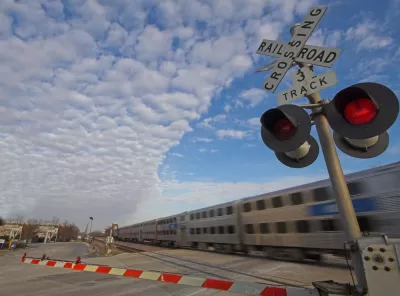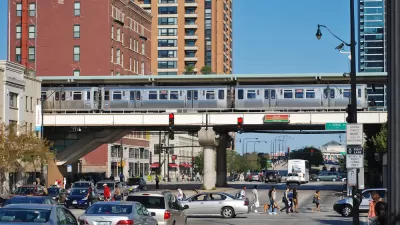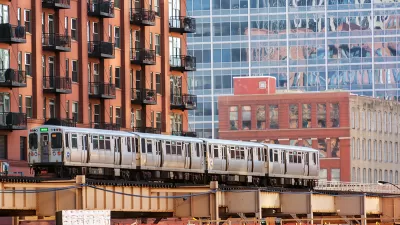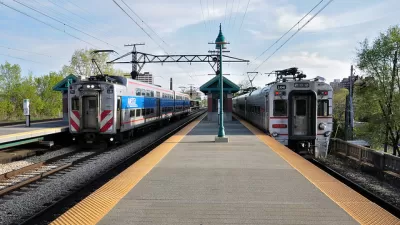The Red Line extension to 130th is still unfunded and a universal Chicago fare card hasn’t materialized, but in the immediate term, the Metra can run more trains and charge lower fares to help get the South Side moving.

South Side Chicagoans lack the transportation resources enjoyed by their neighbors farther north. There are fewer bike lanes, many of the roads are in worse shape and they don’t have as robust a public transit service as North Siders enjoy. An editorial by the Chicago Tribune Editorial Board argues that the fastest way to address the issue is to improve service on the Metra Electric Line. The editorial contends that, while they would like to see the city get on a one-payment card system for all the areas and transit services and the Red Line extended, the expansion of Metra service on the Electric Line could happen faster.
"Metra has already agreed to build a new Electric Line station at 95th Street, as well as a parking facility on the campus of nearby Chicago State University," the editorial points out. The newspaper argues the service should go beyond these efforts by increasing the number trains they run and matching the CTA’s lower fares.
Importantly, the Metra Electric Line could more easily increase the number of trains it runs than other Metra lines because, unlike other lines, Metra owns those tracks and doesn’t share them with freight rail. The Tribune argues that lower fares and better service will increase ridership on the Electric Line, pointing to a study Cook County conducted on the matter, additional fare revenue could help cover some of the additional costs of this service, but more importantly, in the view of the piece’s authors, it would get more people where they need to go.
FULL STORY: Editorial: A smart plan to help Metra serve the South Side better

Maui's Vacation Rental Debate Turns Ugly
Verbal attacks, misinformation campaigns and fistfights plague a high-stakes debate to convert thousands of vacation rentals into long-term housing.

Planetizen Federal Action Tracker
A weekly monitor of how Trump’s orders and actions are impacting planners and planning in America.

San Francisco Suspends Traffic Calming Amidst Record Deaths
Citing “a challenging fiscal landscape,” the city will cease the program on the heels of 42 traffic deaths, including 24 pedestrians.

Defunct Pittsburgh Power Plant to Become Residential Tower
A decommissioned steam heat plant will be redeveloped into almost 100 affordable housing units.

Trump Prompts Restructuring of Transportation Research Board in “Unprecedented Overreach”
The TRB has eliminated more than half of its committees including those focused on climate, equity, and cities.

Amtrak Rolls Out New Orleans to Alabama “Mardi Gras” Train
The new service will operate morning and evening departures between Mobile and New Orleans.
Urban Design for Planners 1: Software Tools
This six-course series explores essential urban design concepts using open source software and equips planners with the tools they need to participate fully in the urban design process.
Planning for Universal Design
Learn the tools for implementing Universal Design in planning regulations.
Heyer Gruel & Associates PA
JM Goldson LLC
Custer County Colorado
City of Camden Redevelopment Agency
City of Astoria
Transportation Research & Education Center (TREC) at Portland State University
Jefferson Parish Government
Camden Redevelopment Agency
City of Claremont





























